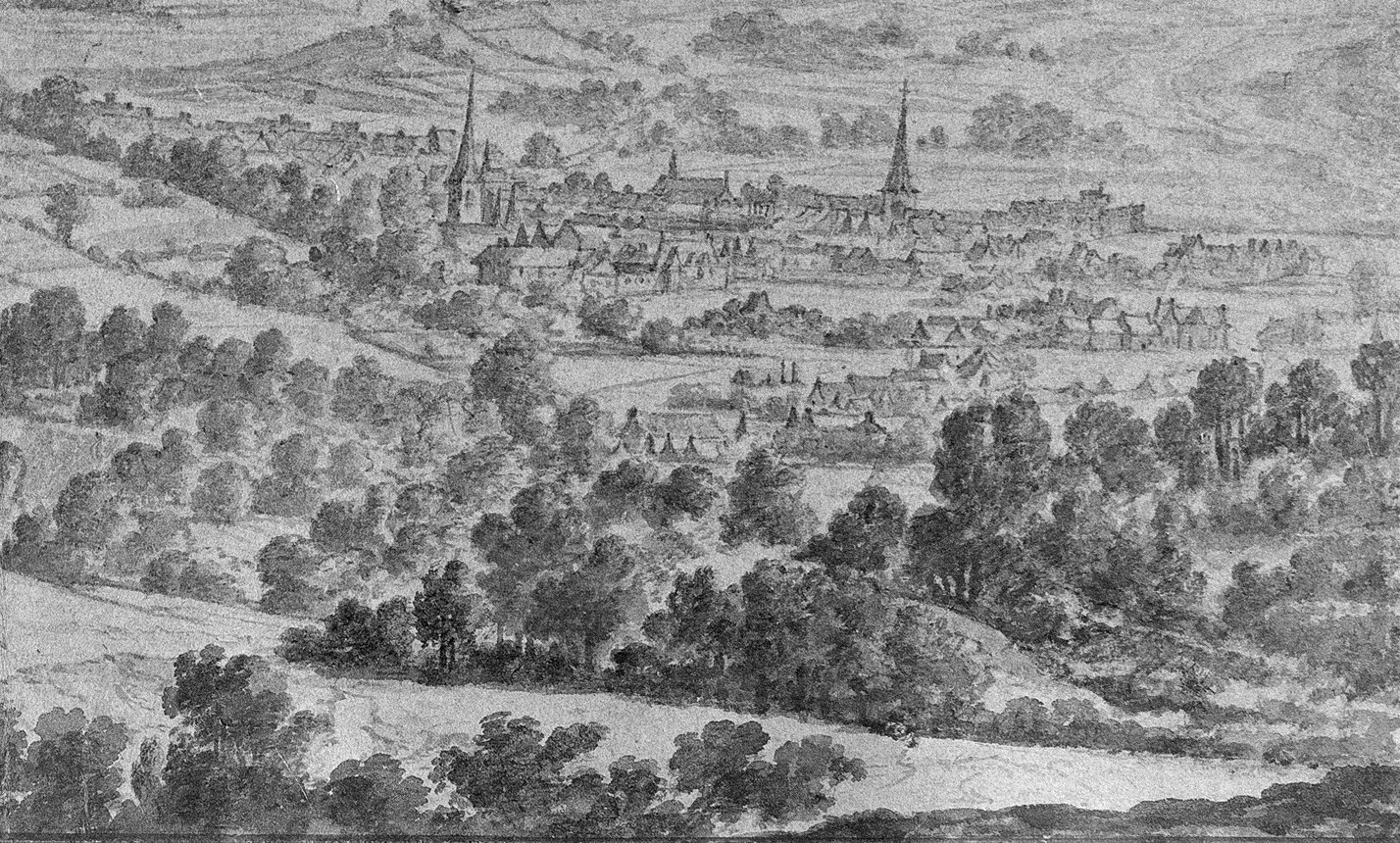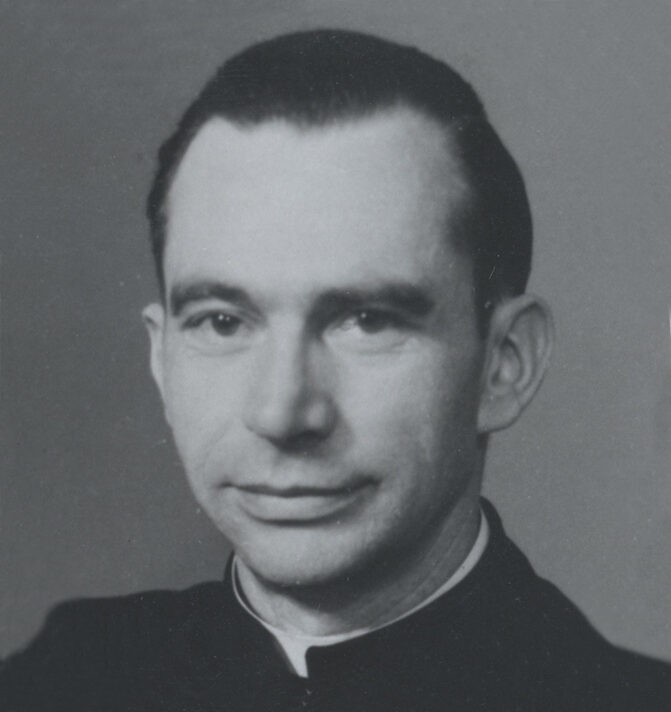Paul Kettmus was born on 27 November 1913, the third of four children of Johann Kettmus (Amelscheid) and Elisabeth Grommes (Schönberg). His father was killed on the Eastern Front in Galicia in 1917. Young Paul spent his childhood in Schönberg before attending secondary school in Sankt Vith. After graduating from the Collège Patronné (catholic school) in Eupen (1934), he studied philosophy in Leuven, then theology in Liège and Aachen. He was ordained priest in the imperial city on 21 December 1940. After his studies, he came to Gerderath and Kolkrath (deanery of Erkelenz) as parish administrator (a junior post as a priest).
He was entrusted to herd the flock of the parish of Mürringen-Hünningen in 1943. Kettmus was to work in this parish for about 40 years. He always saw his pastoral mission in pastoral care as the shepherd to the flock and persistent animator of religious life in the two villages. His formative actions and activities include the taking over of religious education (until 1977), the establishment of a kindergarten (1950), the support of young theology students, the encouragement of young people to engage in spiritual professions or missionary fields of activity, the building of the parish home (1961) as well as the organisation of a Catholic rural youth (1950s), which increasingly coloured village life itself from the 1960s onwards with its own range of activities (carnival meetings, carnival procession, camp, quiz, excursions for the elderly…).
The ability to think far ahead, the power of renewal, and the will to progress determined the actions of ‘Herr Pastor’, especially after the Second Vatican Council. Determination distinguished him in the implementation of the new guiding ideas: an interior arrangement of the church that promoted a sense of ‘we’, rethinking the stages of the lay apostolate, setting up a parish council, and allowing girls to serve as altar servers in the 1970s.
No less purposeful was Kettmus’s work beyond the parish boundaries. The creation of the Büllingen deanery (1968), the initiative to found a catholic school in Büllingen (1970), taking leadership of the deanery (1973-1978) are all examples of Kettmus’ unwavering commitment.
The parish priest made his presence felt in higher places, too, in each case in association with contemporaries. In 1950, for example, he wrote a petition to the so-called Harmel Centre (centre for research into the national solution of the social, political and legal problems of the Walloon and Flemish regions). Their endeavour: the reminder of the right ‘to protection and promotion of language and culture after the last war in the Eastern Cantons’.
Likewise, Kettmus endeavoured to sound out supportive contacts for East Belgian youth work. The priests saw an orientation towards the Flemish Boerenjeugdbond as the basis for organising their youth work in the parishes. Kettmus always acted as a political person whose observation and assessment should not go unnoticed.
Looking back at the processes initiated by Kettmus in the microcosm of the parish, it becomes clear how eagerly he stood up for his ideas. His seeds fell on fertile soil. Quiet and committed comrades-in-arms and allies were found. But acceptance for everything new within the 40-year activity of the feisty pastor had to be constantly struggled for. He was not spared resistance and opposition. The momentum that the parishioners took up and lived from Kettmus’ initiatives was nevertheless clearly aimed at sustainability. Yet, it is as finite as the enthusiasm and some understanding.
Paul Kettmus’ private world was as clearly structured as his creative period when he decided to spend his retirement in his home village of Schönberg from 1983 on. He died there on 4 February 2005, at the age of 91.
Even today, people still influence East Belgium’s destiny who are not directly involved with politics. They stand up for animal and environmental protection, for workers’ rights, for a better life together or other interests. They influence our present.
Sources and further reading
Fredy Keller, Eine Hochzeitsgesellschaft im Jahre 1938, in: ZVS, 1998/07, p. 138 f.
Carlo Lejeune, Die Eingabe der belgischen Priester an die Harmel-Kommission 1950, in: ZVS 2015/09, S. 214 f.
Norbert Meyers, stiller Visionär im Einsatz für eine offene Kirche von unten“, in: Grenz-Echo, 12 February 2005, p. 13.
Jochen Lentz, Nr. 23, Landsturmmann Johann Kettmus“ unter: „Das Reserve-Infanterie-Regiment Nr. 29 und seine Bedeutung für Eupen-Malmedy (Teil 2), in: ZVS, 2014/10, p. 222.
Carlo Lejeune, Im Namen des Vaters, in: Carlo Lejeune, Andreas Fickers und Freddy Cremer, Spuren in die Zukunft, Büllingen, Lexis Verlag, 2001, p. 27 ff.
Gerhard Palm, Alfons Velz, Pfarrheim Mürringen 1961-1986 – 25 Jahre im Dienste unserer Dorfgemeinschaft, published by Pfarrgemeinde Mürringen, St. Vith, 1986.

